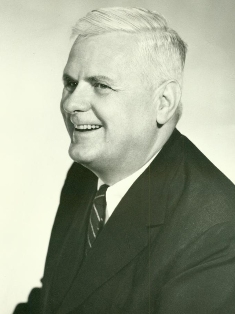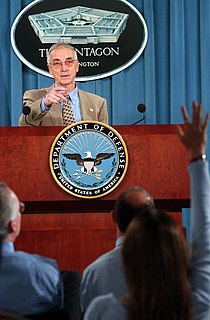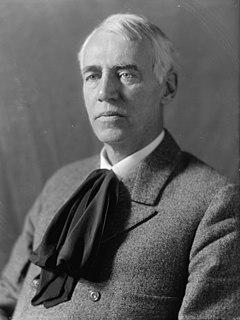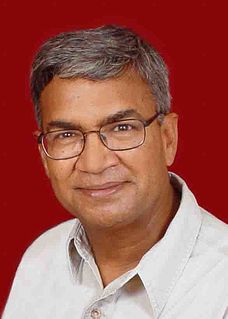Related Research Articles

Stephen Arthur Cook, is an American-Canadian computer scientist and mathematician who has made major contributions to the fields of complexity theory and proof complexity. He is a university professor at the University of Toronto, Department of Computer Science and Department of Mathematics.

Alonzo Church was a renowned American mathematician, logician, philosopher, professor and editor, who made major contributions to mathematical logic and the foundations of theoretical computer science. He is best known for the lambda calculus, the Church–Turing thesis, proving the unsolvability of the Entscheidungsproblem, the Frege–Church ontology, and the Church–Rosser theorem. He also worked on philosophy of language. Alongside his student Alan Turing, Church is considered one of the founders of computer science.

A question is an utterance which typically functions as a request for information, which is expected to be provided in the form of an answer. Questions can thus be understood as a kind of illocutionary act in the field of pragmatics or as special kinds of propositions in frameworks of formal semantics such as alternative semantics or inquisitive semantics. Questions are often conflated with interrogatives, which are the grammatical forms typically used to achieve them. Rhetorical questions, for example, are interrogative in form but may not be considered true questions as they are not expected to be answered.
Nuel Dinsmore Belnap Jr. is an American logician and philosopher who has made contributions to the philosophy of logic, temporal logic, and structural proof theory. He taught at the University of Pittsburgh from 1963 until his retirement in 2011.
Logical harmony, a name coined by Michael Dummett, is a supposed constraint on the rules of inference that can be used in a given logical system.
Hubert Schleichert was an Austrian emeritus philosopher, now living in Konstanz.

Thomas Francis Bayard Jr. was an American lawyer and politician from Wilmington, Delaware. He was a Democratic U.S. Senator from Delaware in the 1920s.
Alan Ross Anderson (1925–1973) was an American logician and professor of philosophy at Yale University and the University of Pittsburgh.
In logic, a four-valued logic is any logic with four truth values. Several types of four-valued logic have been advanced.

The Donald E. Knuth Prize is a prize for outstanding contributions to the foundations of computer science, named after the American computer scientist Donald E. Knuth.
Randy Howard Katz is a distinguished professor at University of California, Berkeley of the electrical engineering and computer science department.
Edward Joseph McCluskey was a Professor at Stanford University. He was a pioneer in the field of Electrical Engineering.
Erotetics or erotetic logic is a part of logic, devoted to logical analysis of questions. It is sometimes called the logic of questions and answers.

Ronald Fagin is an American mathematician and computer scientist, and IBM Fellow at the IBM Almaden Research Center. He is known for his work in database theory, finite model theory, and reasoning about knowledge.
Dragomir R. Radev is a Yale University professor of computer science working on natural language processing and information retrieval. He previously served as a University of Michigan computer science professor and Columbia University computer science adjunct professor. Radev serves as Member of the Advisory Board of Lawyaw.
Belknap or Belnap is a surname of Norman origin from England that may come from the Anglo-Norman words "belle," meaning beautiful, and "knap," meaning the crest or summit of a small hill. Although today the "k" in Belknap is generally silent as in the words "knight" or "knee," it is evident from documents dating from the Middle English period that it was originally pronounced as a hard "k." The surname is relatively infrequent, and most Belknaps or Belnaps in America are thought to descend from one man, Abraham Belknap, who migrated from Sawbridgeworth, Hertfordshire, England to Lynn, Massachusetts, about 1635. The surname continued in England. Today, a wide variety of locations and institutions are named Belknap or Belnap, all of which are believed to be connected in some manner to this early Puritan emigrant to America. Places named Belknap or Belnap include over 130 streets, approximately 20 towns, and 1 U.S. county. Natural features named Belknap range from a nunatak near the South Pole in Antarctica, to a Canadian cape near the North Pole, to a seamount beneath the Pacific Ocean between California and Hawaii, to a tiny rocky island in Indonesia in Southeast Asia.

Anil K. Gupta is an Indian-American philosopher who works primarily in logic, epistemology, philosophy of language, and metaphysics. Gupta is the Alan Ross Anderson Distinguished Professor of Philosophy at the University of Pittsburgh. He is also a Fellow of the American Academy of Arts and Sciences. His most recent book, Conscious Experience: A Logical Inquiry, was published by Harvard University Press in 2019.
Eugene Wong is a Chinese-American computer scientist and mathematician. Wong's career has spanned academia, university administration, government and the private sector. Together with Michael Stonebraker and a group of scientists at IBM, Wong is credited with pioneering database research in the 1970s from which software developed by IBM, Microsoft, and Oracle descends. Wong retired in 1994, since then holding the title of Professor Emeritus of Electrical Engineering and Computer Sciences at UC Berkeley.
J. Michael Dunn was Oscar Ewing Professor Emeritus of Philosophy, Professor Emeritus of Informatics and Computer Science, was twice chair of the Philosophy Department, was Executive Associate Dean of the College of Arts and Sciences, and was founding dean of the School of Informatics at Indiana University.
References
- 1 2 3 "Thomas Brevard Steel, Systemwide". University of California. Retrieved 4 February 2022.
- 1 2 3 Lee, J. A. N. "Thomas B. Steel". IEEE Computer Society. Retrieved 4 February 2022.
- ↑ "Steel honored by ACM award". Computerworld. 3 October 1977. Retrieved 4 February 2022.
- ↑ "Joseph Frederico Seiler Weds Mary Stuart Steel". New York Times. 22 June 1981. Retrieved 4 February 2022.
- ↑ Reviews include:
- Kielkopf, Charles F. (September 1978). "The Logic of Questions and Answers. Nuel D. Belnap, Jr. , Thomas B. Steel, Jr". Philosophy of Science. 45 (3): 490–491. doi:10.1086/288828.
- Harrah, David (June 1978). "Nuel D. Belnap Jr., and Thomas B. Steel Jr. The logic of questions and answers. Yale University Press, New Haven and London1976, vii + 209 pp. - Urs Egli and Hubert Schleichert. Bibliography of the theory of questions and answers. Therein, pp. 155–200". The Journal of Symbolic Logic. 43 (2): 379–380. doi:10.2307/2272838. JSTOR 2272838.